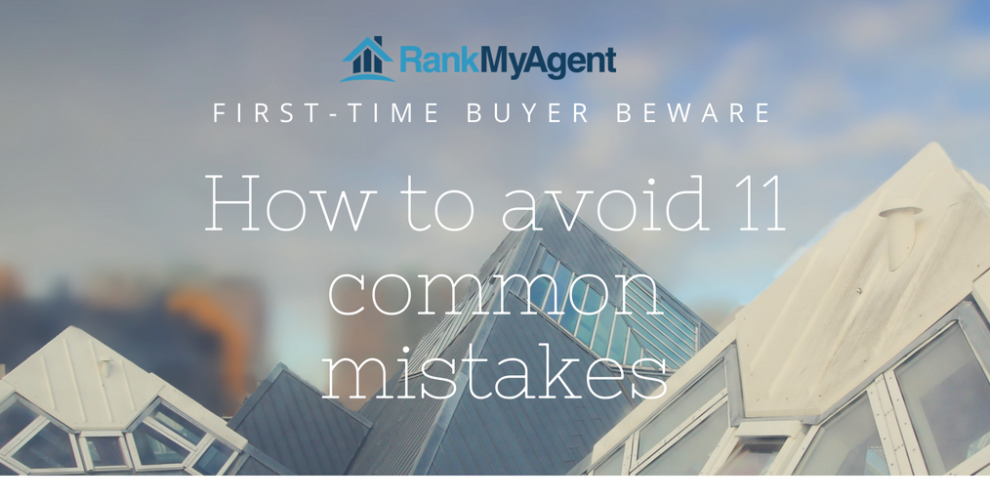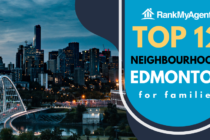Buying a home can be a very stressful event, even for seasoned buyers. For first-time home buyers, especially, the process can be so overwhelming that it is no longer the highlight it should be. Much of the stress and anxiety first-time home buyers face occurs simply because they don’t know what they don’t know. To help make your first-time home-buying experience as positive as it can be, we have compiled a list of tips and suggestions based on eleven common mistakes made by first-time buyers.
Get That Pre-Approval
Most of us would probably agree that the fun part of buying a home is the search, not the financing. While it can be tempting to focus on the excitement of the house hunt, establishing a relationship with a lender in advance is essential. Qualifying for a mortgage involves several different factors, including your income, savings and credit score. Based on that information, a lender will give you a pre-approval amount that can help to guide your search. Proceed with caution, though: the Canadian Real Estate Association warns that pre-approvals sometimes overestimate real purchasing budgets, and it emphasizes that pre-approvals do not guarantee financing. Nevertheless, you would be wise to start the financing process before you set your heart on a property.
Do Your Research
Location, location, location. The old adage remains true, but your definition of a prime location will depend on your particular requirements. Sure, the inner-city hipster-havens are full of entertainment and culture, but does urban living suit your style? New communities can offer room to stretch your legs, but do the amenities meet your needs? The City of Calgary has many resources to assist you in finding information about your prospective community and its future development. Check out the Planning & Development and Community Services departments online for more information about Calgary’s many and diverse communities.
Freehold or Condominium?
Often, your budget will determine what property type you purchase. Condos and townhouses can offer the features and finishes you want at a lower purchase price. However, monthly maintenance fees can add up. Also, major improvements to common areas could bring special assessments that might run into the thousands. The Centre for Public Legal Education Alberta recommends that buyers have a professional document review completed to ensure that a condominium corporation is in good standing. With a freehold property, you don’t have to worry about monthly fees, special assessments or reserve funds, but the tradeoff is that you are responsible for all maintenance of and repairs to your property. Weigh the advantages and disadvantages, and consider how each type of ownership fits your lifestyle before deciding on a property.
Be Realistic About What You Can Afford
No one wants to be house poor. The Canada Mortgage and Housing Corporation (CMHC) recommends that home buyers spend no more than 32% of their gross income on all mortgage-related expenses—that means the mortgage principal and interest, as well as property taxes and utilities. You might also need to budget for monthly condominium fees, as well as mortgage and homeowners’ insurance. If you aren’t careful, your once-manageable purchase price could balloon into a burden. Sit down with pen in hand and write out your monthly budget, taking into consideration all applicable costs. If you aren’t comfortable living on what’s left over, think about lowering your price point.
Take Off Those HGTV-Coloured Glasses
Admit it: you want hand-scraped hardwood floors, waterfall quartz countertops, massive closets, and a tastefully finished basement. Unfortunately, it isn’t likely that you’ll get everything on your wish list in your first home. Instead of expecting perfection, make a realistic shortlist of must-haves. Maybe you can live with the old countertops for now if the transit links are good and the yard is big enough for Fido.
Don’t Rush!
Your home might be the most significant purchase you ever make, and you don’t want to be hit with (home)buyer’s remorse three months in. Take your time. Talk it out with your partner, family members and friends. Test drive your would-be commute and visit local restaurants, shops and services. Walk around the neighbourhood and chat with your potential neighbours—after all, who knows the community better than those who live in it?
… But Don’t Wait Too Long
Your top choice could be hot property. There is nothing worse than falling in love with a home and mentally moving in, only to have your hopes snatched away by another, faster-moving buyer. Depending on the market, you might have to act fast. Make sure your financing and shortlist of must-haves are in order so you can move quickly when the time comes.
Get That Home Inspection
We’ve all heard the horror stories: someone forgoes an inspection on their dream home, only to move in and find out there are major issues an inspector would have caught. To avoid unforeseen expenses, CMHC recommends that all home buyers have a home inspection completed to make them aware of any required repairs or replacements. Knowing about issues in advance will allow you to make an educated decision about what might be your largest single purchase, ever. To find an inspector, ask a friend or family member for a recommendation, or contact the Alberta Professional Home Inspectors Society.
Plan For Fees
We’ve all heard of “closing costs,” but do we actually know what these fees entail? Although the seller pays the real estate agents’ fees, buyers have their own set of costs to settle before taking possession. According to ATB Financial, you can expect to pay around 2% of the purchase price of your new home on costs associated with closing. These might include a property appraisal, home inspection or condominium document review, in addition to lawyers’ fees. You might also need to budget for adjustments for utilities and taxes the seller has already paid, as well as your own moving costs. Do this math ahead of time and avoid feeling strapped for cash on possession day.
Take Advantage of Programs and Credits
Short on your down payment but have a healthy registered retirement savings plan (RRSP)? The Government of Canada’s Home Buyers’ Plan allows buyers to withdraw from an RRSP up to $25,000 in a calendar year to buy or build a home.
If you’re looking at a fixer-upper, consider talking to your broker or lender about a Purchase Plus Improvements mortgage. This CMHC program allows buyers to borrow up to 10% of the as-improved value of their home, and to roll that into their mortgage. Think of it as borrowing in advance on equity you create through your renovations.
When you file your income taxes for the year of your home purchase, don’t forget to claim the non-refundable $5,000 First-Time Home Buyers’ Tax Credit, which could put up to $750 in tax savings back into your pocket.
Choose the Right Real Estate Agent
There is one person who can help you navigate all the ins and outs of your first-time home purchase (and every home purchase thereafter): your real estate agent. Not all agents are the same, and you require someone who meets your needs and expectations. Ask friends, family members and colleagues for their recommendations, and then read verified reviews about their recommended agents at RankMyAgent.com.
Purchasing your first home is a major life milestone, and with good planning, it doesn’t have to be stressful. By choosing an agent who is a good fit for you and following these tips and suggestions, you can rest assured that your first-time home-buying experience is memorable for all the right reasons.





0 Comments